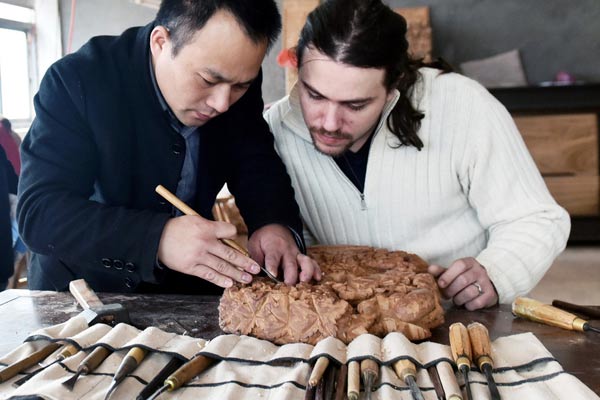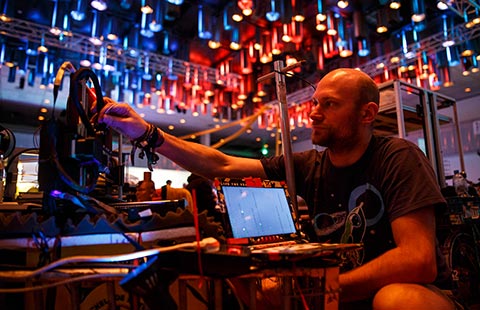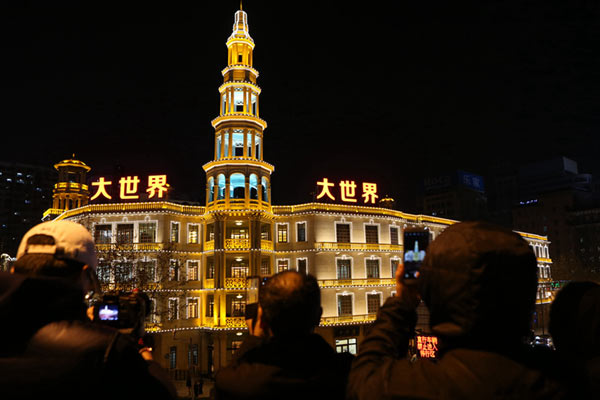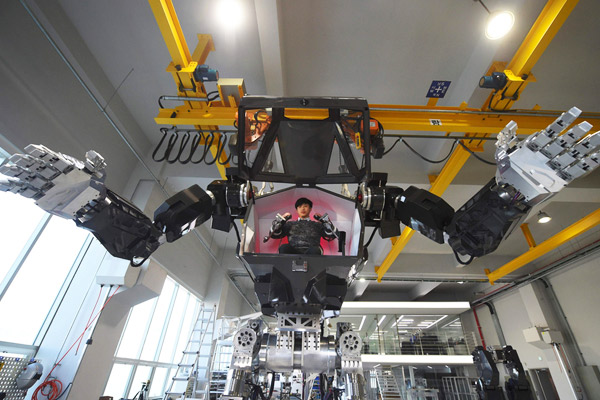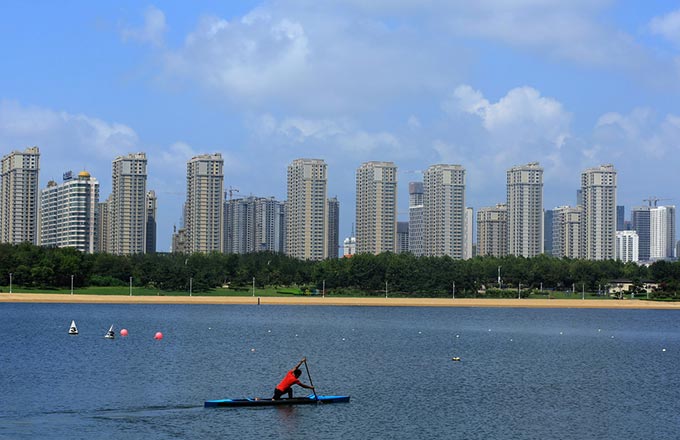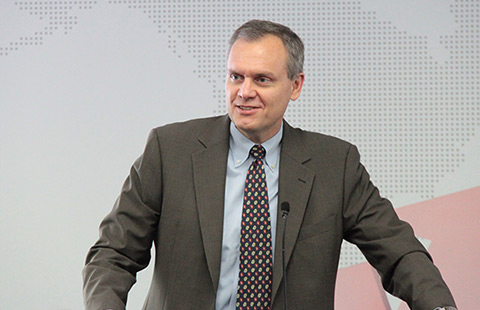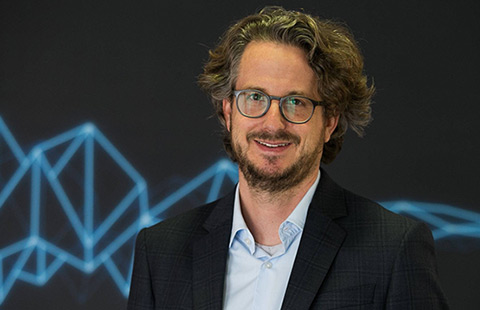Manufacturers gain credibility in EU market
"Renewable energy is what Europe puts emphasis on, and electric buses will lead the trend," said Chen.
"We are glad to see that BYD is four to five years ahead of European products in the sector" thanks to research and development, he added.
Long way to go
Despite the progress that China has made in the past 20 years to lift its reputation as a global manufacturer, many executives and industrial insiders still believe China has a long way to go before it could be at the forefront of high-technology innovation.
"Made-in-China goods will eventually become the gold standard worldwide. It's a matter of time," said Chen Yongwu, general manager of Zoje Europe GmbH.
But "for the time being, there is time for Chinese manufacturers to catch up with their peers in Europe, and Germany in particular, in high-end and value-added goods", he said.
For example, Zhejiang-based Zoje Sewing Machine Co Ltd, the world's leading industrial sewing-machine maker, made two acquisitions in Germany in a bid to improve its technology.
Echoing Chen Yongyu, Tan Zuozhou, president of LiuGong Poland, said: "There is room for us to improve in terms of technology compared with the top industrial brands in Europe. We also have a lot to do in branding."
Guangxi LiuGong Machinery, a Nanning-based Chinese building equipment maker, set up its European headquarters in Poland by acquiring a local counterpart in the eastern European country in early 2012.
For Sander Gesink, marketing manager of LiuGong Machinery Europe BV, "it's not about products only, but more about brand".
Gesink, who has been in the European industry for more than 10 years, added: "LiuGong is a new brand in the EU, and there are challenges to build the brand here. The biggest is the perception of the Chinese brand ... People don't think the Chinese brand is good and worth buying."
For many Chinese brands like LiuGong, another big obstacle is the stigma attached to the "made-in-China" label, which is traditionally associated with sweatshop labor and cheap products.
According to Li Minyan, managing director and chairman of China Certification & Inspection Group Europe BV: "Many Chinese manufacturers are not inferior to their Western rivals in technology and design, but unfortunately, a majority of them lack global recognition.
"They need to accelerate their efforts in branding and marketing to raise their awareness. It is time-consuming," she said.
Narrowing gap
Despite the gap, Chinese brands are strongly motivated to improve and compete on the same level as the top global industrial players.
"China is well on its way. But it could take 20 to 30 years for the nation to become a globally well-known manufacturer like Germany," said Wang Weidong, commercial counselor of Chinese Consulate-General in Frankfurt.
"China needs to join hands with European counterparts through mergers and acquisitions and learn from them," he said.
A slew of Chinese companies, including Sany, Xuzhou Construction Machinery Group and Hebei Lingyun, have invested in extending their reach in Europe and they hope to absorb new technologies by recruiting German engineers and getting closer to more customers around the continent.
"We get more technical ideas from our counterparts, and they can expand sales in China and Asia. It's win-win deal," said Chen from Zoje.
As sagging global demand hurts Chinese exports, the Chinese government has repeatedly promised to encourage domestic manufacturers to improve technology and make investments on design and innovation.
In China, there are a number of manufacturers who own a list of clients that enjoy a worldwide reputation, and now, many of them have decided to work on their own brands to target high-end customers.
Bosideng Corp is one of them. The world's largest feather jacket manufacturer has been an OEM for various famous foreign fashion brands, about which Zhu Wei, CEO of Bosideng Corp UK, declined to elaborate.
"It's not a small business, worth 140 million yuan ($22.47 million) annually, but the problem is the Bosideng brand is quite new globally, especially in the European market," Zhu said.
In July, the company announced plans to open a three-story menswear store in the busiest commercial area in London, its first-ever store abroad. The store targets high-end customers.
And Bosideng has other ambitious overseas expansion plans. It intends to expand into high-end shopping malls in London, probably early this year, and it is also in talks with some European counterparts, probably from Italy, on acquisition deals.
"Numerous Chinese manufacturers don't have strong brands abroad, and they have to work for others as OEMs, reaping tiny profits. They need to change the situation with the help of think tanks," said David Feng, special assistant to the president of the Aigo Entrepreneurs Alliance.
The alliance, which was set up in 2011, aims to help Chinese companies expand overseas, establish sales networks, conduct market investigations and promote brands.
"We have assisted more than 20 domestic companies settle in Europe, and in 2013, that number will be 50 to 100," Feng said.
Contact the writer at dingqingfen@chinadaily.com.cn





